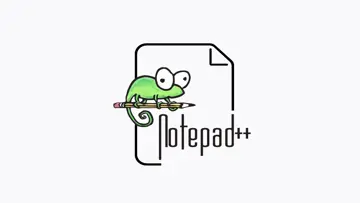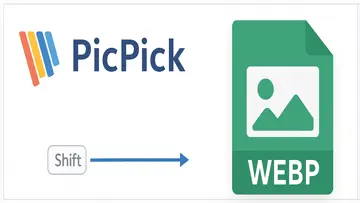Editor’s Review of Bitstring by Richard Jones
Bitstring, developed by Richard Jones, is a powerful and efficient library designed for manipulating binary data in Python. This library aims to offer a simplified approach to working with bit-level operations, making it an ideal choice for developers who need to manage low-level data manipulation without sacrificing performance or ease of use.
Key Features of Bitstring
- Flexible Data Types: Bitstring allows users to create and manipulate binary data in a variety of formats. This includes not just standard binary strings but also other representations such as integers, floats, and ASCII strings.
- Concise Syntax: The library employs a clear and straightforward syntax that facilitates readability and ease of use. This is particularly advantageous for developers looking to implement bit manipulation in their projects without the overhead of complex notations.
- Rich Functionality: Bitstring comes equipped with features for bit-level operations such as slicing, shifting, and masking. The library also supports logical operations including AND, OR, and XOR, making it versatile for different applications.
- Compatibility: Designed for Python 2 and 3, Bitstring caters to a wide range of users and existing projects. Its cross-version support allows developers to integrate the library into legacy codebases as well as new Python applications.
- Endianness Support: The library provides functionality for handling both big-endian and little-endian formats. This is especially useful when dealing with networking protocols or binary file formats that have specific endianness requirements.
Installation Process
Installing Bitstring is a straightforward process. It can be done easily via the Python Package Index (PyPI) using pip:
- Open your command line interface.
- Run the command:
pip install bitstring. - Once the installation completes, you can begin using the library in your Python scripts.
This simple installation process ensures that developers can quickly get started with Bitstring without complications.
Basic Usage Examples
The following examples illustrate some fundamental functionalities of the Bitstring library:
- Creating Bitstrings:
from bitstring import BitString bit = BitString('0b1011') # Binary string print(bit) # Output: 0b1011 - Slicing Bits:
sliced_bit = bit[1:3] print(sliced_bit) # Output: 0b10 - Bit Shifting:
shifted_bit = bit << 2 print(shifted_bit) # Output: 0b1100 - Logical Operations:
bit2 = BitString('0b1100') result = bit & bit2 print(result) # Output: 0b1000
Use Cases for Bitstring
Bitstring is particularly beneficial in various scenarios that require manipulation of binary data. Below are some common use cases:
- Networking Applications: Handling packet structures and low-level protocol implementations benefit greatly from the ability to manipulate bits directly.
- File Formats: Reading and writing binary file formats often mandates precise control over byte streams; Bitstring simplifies these tasks through its intuitive API.
- Data Compression Algorithms: Many compression algorithms rely on bit-level operations for efficiency, making Bitstring a valuable tool for developers in this domain.
- Coding Theory: In applications involving error detection and correction codes (e.g., Hamming codes), having robust tools for bit manipulation is essential.
Performance Considerations
This library is designed with performance in mind. It efficiently handles large binary data structures without unnecessary overhead. Additionally, the internal implementation ensures that operations are executed swiftly even when dealing with considerable amounts of data.
Community and Support
The support ecosystem surrounding Bitstring includes documentation and community contributions. Users can access comprehensive documentation through the official GitHub repository, providing guidelines on installation, features, and usage scenarios. Community forums also exist where developers can share knowledge and address issues encountered while working with the library.
Sustaining Updates
The development of Bitstring is actively maintained by Richard Jones. Updates typically focus on performance enhancements, feature expansions, and compatibility improvements with future Python releases. Keeping track of updates is recommended through official channels to leverage new functionalities as they become available.
The Bitstring library by Richard Jones serves as a substantial asset for developers needing efficient binaries manipulation within Python. With its user-friendly design, extensive features, and focused scope on bit-level operation handling, it stands out as an essential tool in any developer's toolkit that requires low-level data management capabilities.
개요
bitstring 범주 개발 Richard Jones개발한에서 오픈 소스 소프트웨어입니다.
bitstring의 최신 버전은 현재 알려진. 처음 2009-10-16에 데이터베이스에 추가 되었습니다.
다음 운영 체제에서 실행 되는 bitstring: Windows.
bitstring 하지 평가 하고있다 우리의 사용자가 아직.
최신 리뷰
|
|
KMPlayer
Windows 및 Mac을 위한 강력한 멀티미디어 플레이어 |
|
|
Windows PC Health Check
Windows PC 상태 검사로 PC를 원활하게 실행하십시오! |
|
|
SAMSUNG USB Driver for Mobile Phones
삼성 휴대폰을 위한 효율적인 연결 솔루션 |
|
|
Epic Games Launcher
Epic Games Launcher로 Epic Games의 힘을 발휘하십시오 |
|
|
WPS Office
WPS Office: 모든 요구 사항을 충족하는 다용도 오피스 제품군 |
|
|
Adobe Photoshop
최고의 사진 편집 소프트웨어: 어도비 포토샵 리뷰 |
|
|
UpdateStar Premium Edition
UpdateStar Premium Edition으로 소프트웨어를 최신 상태로 유지하는 것이 그 어느 때보다 쉬워졌습니다! |
|
|
Microsoft Visual C++ 2015 Redistributable Package
Microsoft Visual C++ 2015 재배포 가능 패키지로 시스템 성능을 향상시키십시오! |
|
|
Microsoft Edge
웹 브라우징의 새로운 표준 |
|
|
Google Chrome
빠르고 다재다능한 웹 브라우저 |
|
|
Microsoft Visual C++ 2010 Redistributable
Visual C++ 응용 프로그램 실행을 위한 필수 구성 요소 |
|
|
Microsoft Update Health Tools
Microsoft Update Health Tools: 시스템을 항상 최신 상태로 유지하세요! |





